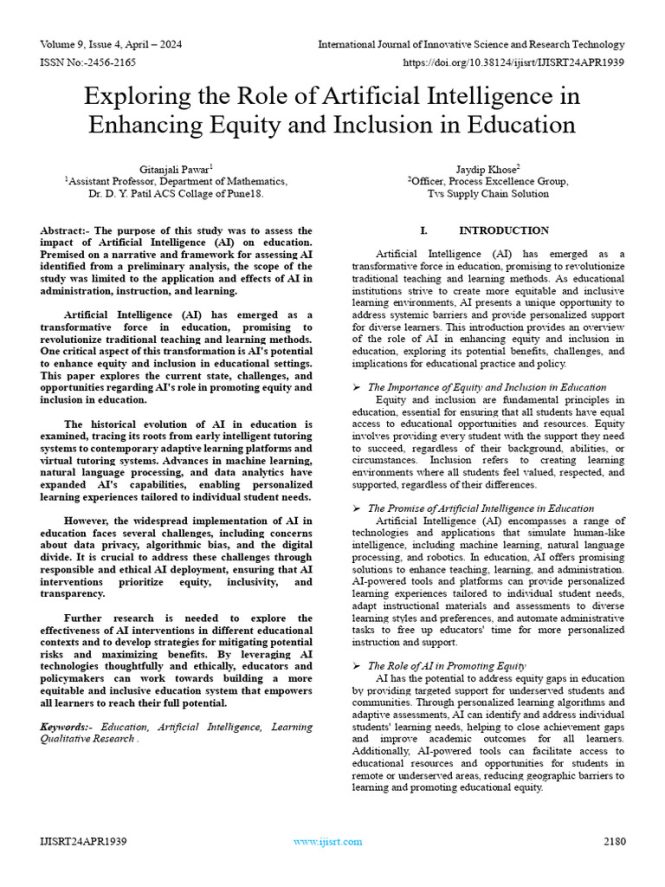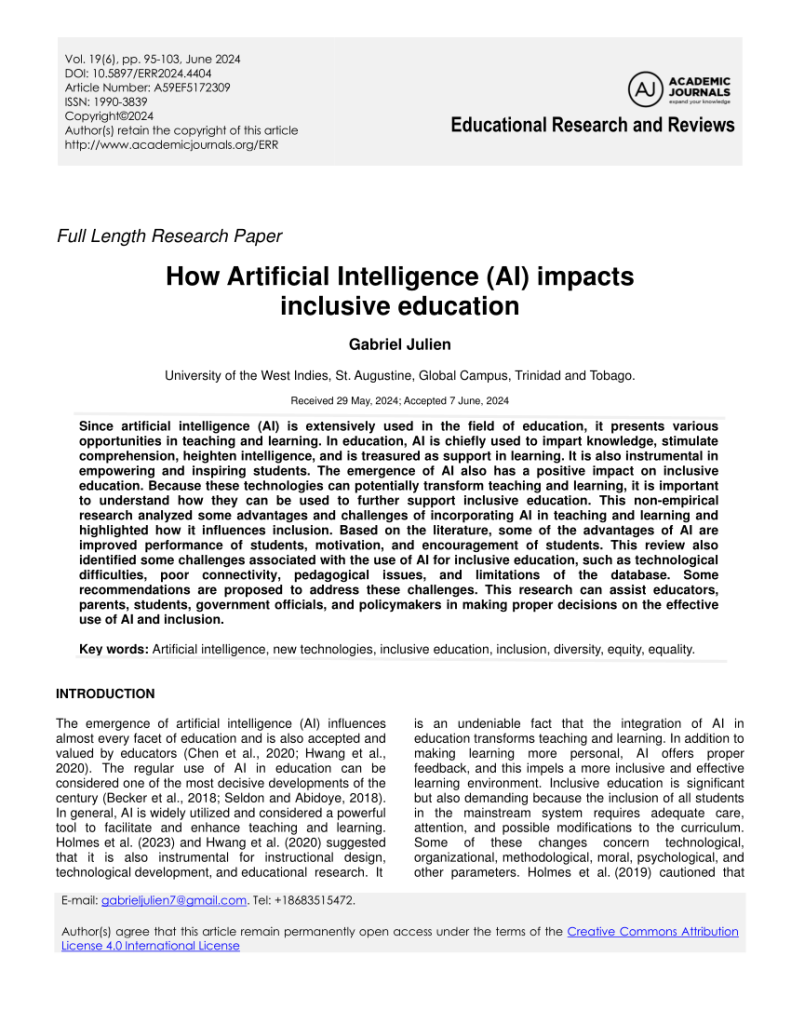

Artificial intelligence (AI) is rapidly transforming various sectors, and inclusive education is no exception. This article explores the multifaceted impact of AI on inclusive education, highlighting both the potential benefits and the challenges that arise from its implementation. We will delve into how AI-powered tools can personalize learning experiences and provide targeted support for students with diverse needs. We’ll also discuss the importance of ethical considerations and equitable access to ensure that AI truly serves the needs of all learners. This article will explore the various ways AI is revolutionizing inclusive education, touching upon personalized learning, assessment, and support for students with special needs. We’ll also examine potential pitfalls and solutions to ensure equitable access and minimize biases. By examining practical examples and addressing key questions, we can better understand the evolving landscape of AI in inclusive education.
The Rise of AI in Education
Personalized Learning Experiences
AI algorithms can analyze individual student performance data to tailor learning paths, creating highly personalized experiences. This customized approach caters to different learning styles, pace, and needs. Adaptive learning platforms, powered by AI, adjust the difficulty of tasks and offer support in areas where a student struggles. For instance, students with learning disabilities might benefit from AI-generated supplementary materials or modified assessments, catering to their specific needs. AI’s ability to identify learning patterns allows educators to provide targeted interventions and resources, leading to improved student outcomes.
Enhancing Accessibility and Inclusivity
Bridging Educational Gaps
AI-powered tools can significantly enhance accessibility for students with disabilities by providing alternative formats for educational content, such as text-to-speech or visual aids. This ensures that learning materials are accessible to students with diverse needs and learning styles. Tools that offer real-time language translation can also greatly benefit students from diverse backgrounds. Furthermore, AI can provide personalized support in areas such as communication and interaction, reducing barriers and creating a more inclusive environment.
AI-Powered Assessment and Support
Evaluating Student Progress
AI algorithms can analyze a wide array of data points, such as student responses and interaction patterns, to provide more accurate and comprehensive assessments than traditional methods. AI-powered platforms can automate tasks such as grading, freeing up educators to focus on providing personalized support and mentorship. This can help to identify students who might be struggling and intervene promptly, potentially preventing educational setbacks.
Ethical Considerations and Equity
Mitigating Biases
It’s crucial to acknowledge the potential for bias in AI algorithms. Pre-existing biases in data sets can perpetuate inequalities in learning outcomes. Developing and implementing AI systems in inclusive education requires careful consideration of these potential biases and the implementation of robust measures to counteract them. By ensuring diverse representation in data sets and using a variety of methods to collect and interpret data, we can mitigate AI biases and create a fairer and more equitable learning environment.
The Future of AI in Inclusive Education
The Potential of Personalized Learning Experiences
The integration of AI into inclusive education has the potential to create more personalized and engaging learning experiences for all students. This technology can assist in bridging educational gaps for students with special needs and fostering greater understanding and cooperation among educators and learners. AI’s use in inclusive education offers a wealth of opportunity to promote more effective learning experiences, create a sense of belonging, and foster overall educational equity. Ongoing research and development in the realm of AI in education will help refine its applications and continue to advance its impact on the inclusive education of students.
Q1 Answer:
AI tools can provide personalized support to students with learning disabilities in various ways. They can adapt learning materials, personalize assignments based on individual needs, and offer supplementary resources. For example, AI-powered tutors can provide real-time feedback and support, helping students grasp concepts more efficiently. AI tools can also assist in providing modified assessments, creating personalized learning paths, and providing additional support for students with diverse learning styles and needs, creating a more inclusive learning experience for students with learning disabilities.
Q2: What are the ethical concerns associated with using AI in inclusive education?
Q2 Answer:
One significant ethical concern is the potential for bias in AI algorithms. If the training data reflects existing societal biases, the AI system may perpetuate these biases in its assessments and recommendations. It is vital to carefully curate and validate data sets to ensure accuracy and fairness. Equitable access to technology and training is also essential to prevent exacerbating existing inequalities. Robust oversight and ongoing evaluation are necessary to minimize the risk of bias and promote responsible AI use in inclusive education.
Frequently Asked Questions
Q1: How can AI tools help students with learning disabilities?
In conclusion, AI’s impact on inclusive education is multifaceted and transformative. AI-powered tools, when implemented thoughtfully and equitably, can foster more personalized learning experiences, bridge educational gaps, and create more accessible learning environments for all students. However, careful consideration of ethical implications, data privacy, and equitable access remains crucial. The future of inclusive education lies in leveraging the potential of AI while mitigating potential biases and ensuring equitable access for all students. By embracing a thoughtful approach and ongoing evaluation, we can harness AI’s potential to create a truly inclusive and equitable education system for all.